Razorous changes in the system of Bar self-government can become a fatal mistake in the entire reform of justice
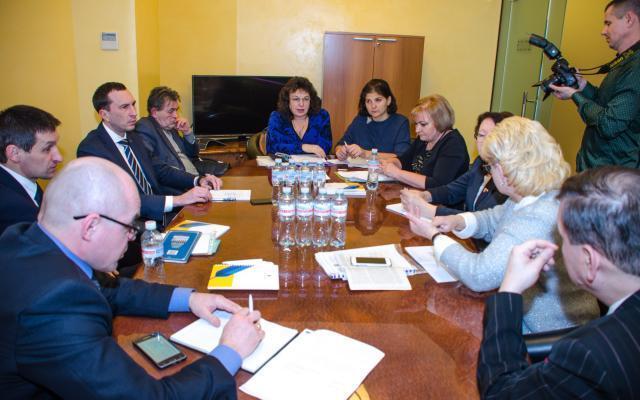
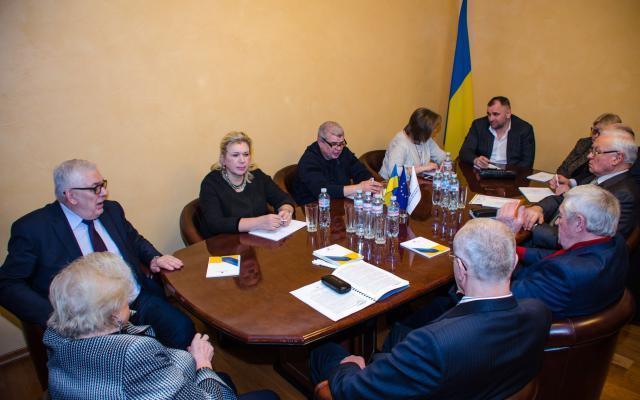
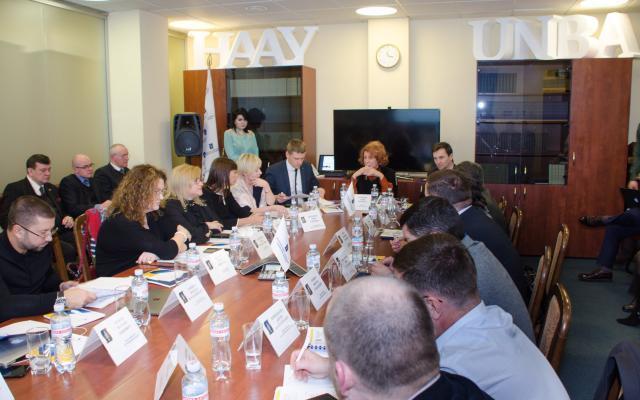
That is the key message of the Resolution, of the Joint Meeting of the Chairs of the Regional Bar Councils, QDCBs, jointly with members of the Bar Council of Ukraine, adopted on February 8, 2018.
The delegates of the meeting got acquainted with the content of the draft law 'On amendments to the Law of Ukraine 'On the Bar and Practice of Law,' developed by CJR Workgroup on Amending Legislation on the Bar, Prosecution and Legal Aid. Representatives of the Bar self-government spoke out against the provisions of the draft law concerning the organization of the profession - from the creation of regional chambers through the elimination of 54 legal entities - current bodies of Bar self-government, to convocating conferences in general format without approved agenda and representation quota affixed by decision of the Bar Council of Ukraine.
During the discussion, representatives of regional self-government from all over Ukraine concluded that reform should take place on an institutional basis of the current model of the Bar. At the same time, the draft submitted by UNBA as an alternative to the WorkGroup's proposals took into account the opinions of regional Bar communities, practical five-year experience of existing self-government and implemented best practices of European advocacy. UNBA maintains systematic cooperation with the European Bars. In favor of such an evolutionary approach stand the fact that the current law regulating the profession is in line with the Joint Opinion Venice Commission's and DG-1 as of October 2011, Ukraine's commitments to PACE and the current standards of the European Union. The adoption of this law was one of the conditions for the conclusion of the EU-Ukraine Association Agreement, which is also enshrined in bilateral international instruments.
Conceptually, the further reform should be based on this foundation, in full compliance with the PACE recommendations, the binding instruments of the Council of Europe and European Union.
Representatives of regional Bar self-government, members of the Bar Council of Ukraine, oppose the change limiting access to profession proposed by the WorkGroup. In fact, the ideologists of the draft law created obstacles hindering access to the profession, by narrowing down admittance to the profession to judges only, or interns that have work under lawyer's supervision for two years. Only these two categories will be allowed to take the Bar exam. In the Transitional Provisions, the draft law contains the proposal to allow, in the until 2021, for anyone with a relevant degree to take the Bar Exam and get a license without the mandatory internship. In addition, the authors suggested that the exam to be administered by a single body - the prospective High Qualifications Commission of the Bar, and in this way the right of appeal against examination results lo longer available. Such approach is devastating for the profession. These "innovations" will bring the quality advocates' corps to the bottom, will open the floodgates to the people who do not have skills and experience, are not aware of the practical meaning of ethical norms, having no sense of justice.
Following the discussion, the delegates decided to:
-reject the proposed version of the draft law devised by WorkGroup, especially their vision for implementing the provisions of the Constitution regarding the exclusive right to represent clients in courts;
-dismiss all proposals to eliminate of the established forms of Bar self-government, which weakens the organization, and as a result, hamper its development and independence;
-remove paragraphs of the Transitional Provisions on a simplified procedure for access to the profession until 2021, establishing unjustified preferences for judges and prosecutors;
- prevent a series of corruption opportunities of the WorkGroup's draft law, which otherwise will provide room for abuses in the exercise of self-government at both the regional and national level;
- support development of the Bar in the direction of strengthening the rights and guarantees of the profession and approve the UNBA proposed amendments to the Law on the Bar and Practice of Law, the Code of Criminal Procedure and the Tax Code;
- support the implementation of all necessary changes that clearly establish the powers of Bar self-government, improve the relations between national and regional bodies, provide a transparent mechanism for the formation of these bodies, based on the existing model of self-government, which according to the Council of Europe experts (Opinion as of December 21, 2017) complies with European standards and has proved its effectiveness for 5 years of its existence;
-maintain the current procedure for administration of Unified Register of Advocates of Ukraine, featuring two-level data entry and integrity control;
-maintain the current procedure of qualification-disciplinary procedures on the basis of existing institutions, created under the Law of Ukraine "On the Bar and Practice of Law" - Qualification-Disciplinary Commissions of the Bar and Higher Qualification-Disciplinary Commission of the Bar.
This position will be presented during "Lawyer's Self-Government: Ways of Improvement" roundtable, which will be held on February 9, 2018, in Kyiv. The text of the Resolution was sent to the Secretariat of Council for Judicial Reform.
Popular news

Discussion
Why lowering the age of marriage lacks legal logic
Although until 2012 there was a provision in family law that allowed children to marry from the age of 14 under certain circumstances, its return to Ukrainian law would contradict international obligations and the logic of criminal law.

Self-government
A report on Ukrainian advocacy was presented in the European Parliament
Can a shadow report on advocacy replace the political framework of the Roadmap on the rule of law with demands for the restructuring of self-government? Where is the line between accountability and the seizure of institutions? And how can we respond to narratives with data rather than impressions?

Guarantees of the practice of law
Proceedings opened following attack on advocate in Dnipro
The Committee for the protection of advocates' rights and guarantees of legal practice of the UNBA appealed to law enforcement agencies in connection with an advocate's report of an attack while performing his professional duties. The information was entered into the Unified Register of Pre-trial Investigations and a pre-trial investigation was initiated.
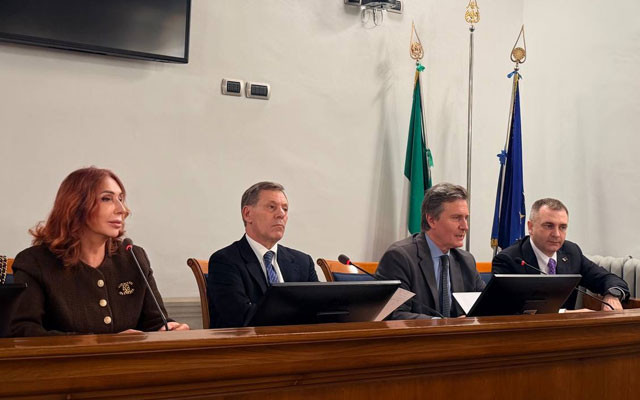
Interaction
«With us — to Europe»: Italian advocacy supports UNBA initiatives
On January 30, a meeting was held in Rome between a delegation from the Ukrainian National Bar Association and the National Bar Council of Italy (Consiglio Nazionale Forense, CNF) on the standards and practices of the legal profession and their significance for Ukraine's European integration process.
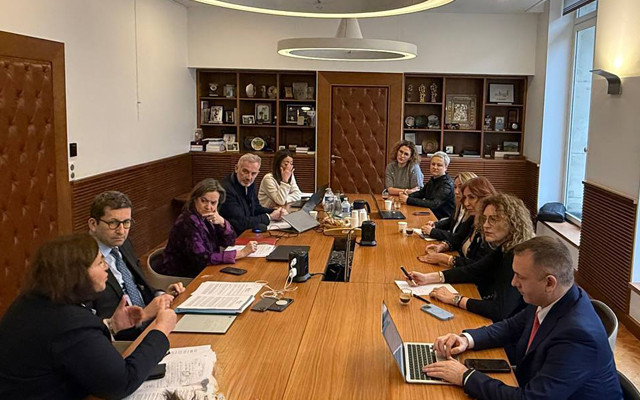
Interaction
France confirms cooperation with UNBA on reforms in the field of the rule of law
On January 29, a working meeting between representatives of the Ukrainian National Bar Association and the French National Bar Council (Conseil National des Barreaux, CNB) took place in Paris.
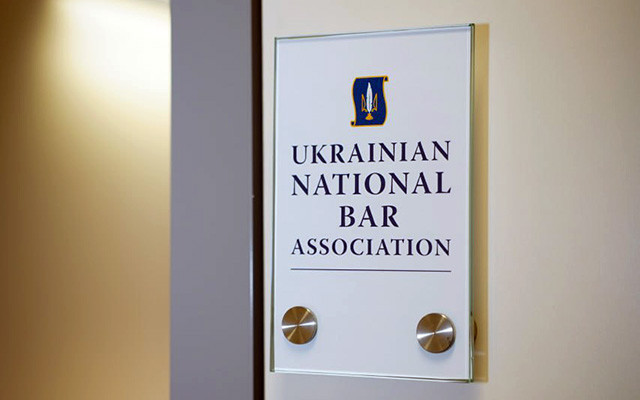
Abroad
UNBA office opens in EU capital
To strengthen the institutional presence of the Ukrainian advocacy community at the European level, an office of the Ukrainian National Bar Association has been opened in Brussels (Belgium), which will serve as a permanent platform for dialogue with European partners.
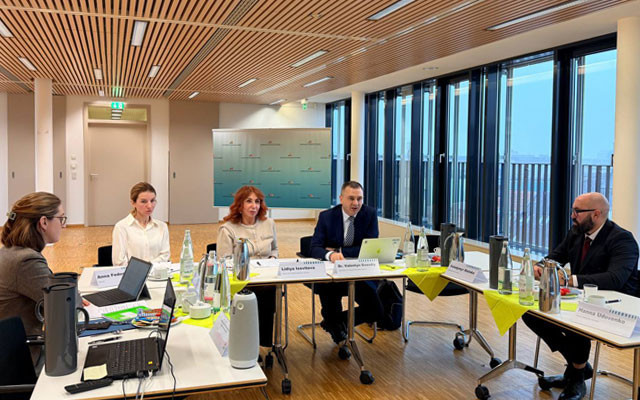
Interaction
UNBA and BRAK discussed European integration priorities and regulation of the profession
On January 26, a meeting was held between representatives of the Ukrainian National Bar Association and the German Federal Bar Association (Bundesrechtsanwaltskammer, BRAK).
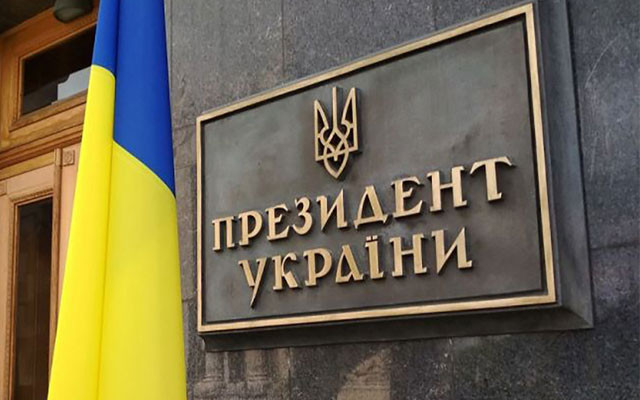
Guarantees of the practice of law
The President was urged to sign the law on strengthening guarantees for advocacy activities
The professional community of advocates called on Ukrainian President Volodymyr Zelenskyy to sign Law No. 4547-IX, which strengthens guarantees for advocates' activities, in particular by introducing liability for identifying an advocate with a client.
Publications

Volodymyr Matsko Extradition as a systemic form of rights violations

Victoria Yakusha, Law and Business The anti-corruption vertical cannot «take care» of the Bar as an institution, - acting head of the HQDCB

Censor.net Protecting advocates – protecting justice: addressing concerns about the new law

Ihor Kolesnykov A BRIEF SUMMARY REGARDING THE APPLICATION OF THE ORDER ON EXTENDED CONFISCATION IN LATVIA REGARDING FINANCIAL ASSETS OF…

Valentyn Gvozdiy WORKING IN A WAR ZONE

Lydia Izovitova Formula of perfection

Sergiy Vylkov Our judicial system is so built that courts do not trust advocates

Iryna Vasylyk Advocacy in the proclamation of Independence of Ukraine
